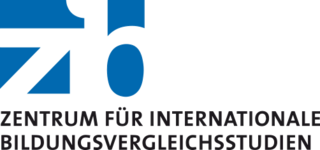Research into the school context of mathematical competence within an international comparative framework
Lead: DIPF
What was the project about?
Large-scale assessments (LSAs) are often criticised for not supplying enough findings on the efficacy of school teaching. Since 2000, the German PISA teams have also included questions which let researchers measure how teaching is perceived in order to address this issue. However, for international comparison of research into the teaching context these extensions also need to be introduced to the PISA study at international level. National teaching cultures can only be identified based on questions that are surveyed in all PISA participating countries.
In the 2012 PISA study the DIPF was able to include questions on mathematics teaching from German research into teaching in the international questionnaires. The ZIB project used the relevant data to answer questions such as:
- It is possible at all, and if so, to what extent can various aspects of teaching quality and teacher professionalism be comparatively recorded across various countries based on questionnaires?
- To what extent can the differences observed in teaching quality and the professional quality of teaching staff be explained by characteristics of the various cultures?
What results did the project produce?
- The study was able to identify country-specific teaching cultures. In Scandinavian and Anglo-Saxon countries and the Netherlands in particular, the teaching of application-oriented mathematics was observed, for instance. In Eastern European and East Asian cultures, the focus tends to revolve around exercises within a narrow mathematical context. In Germany, the two tend to be fairly balanced overall.
- It was also shown that the self-efficacy experience of teachers is related to whether the value system in the respective society is oriented towards individualism or collectivism. The term self-efficacy experience refers to the expectations held by an individual in relation to the effect of their actions.
- The structure of the educational system also plays a role in which attitudes are developed by whom: if - like in Germany - students are already streamed into different types of school according to their abilities at an early juncture, the perceived quality of the teacher-student relationships will depend less on social background and achievement than in educational systems in which school types are not separated so early. Advocates of comprehensive schooling should therefore ensure that young people from higher social strata are not favoured unintentionally.
- Such correlations between cultures, abilities, attitudes and teaching practices show that simply adopting teaching practices from other countries it not expedient because they do not necessarily result in the same success in different cultural contexts.
- The project results were not only used for the design of PISA Plus and the international questionnaires for PISA 2015. The design of the international TALIS video study➚ on maths teaching, also launched by the DIPF in Germany in 2017, was based on these findings, too.
Publications on this project:
- Vieluf, S., Hochweber, J., Kunter, M. & Klieme, E. (2015). Who Has a Good Relationship With the Teachers? A Comparison of Comprehensive Education Systems with Education Systems Using Between-School Tracking. In: Oxford Review of Education, 41, 3-25.
- Vieluf, S. & Klieme, E. (2011). Cross-nationally comparative results on teachers qualification, beliefs, and practices. In Li, Y. & Kaiser, G. (Eds.). Expertise in mathematics instruction. An international perspective, 295-326, New York, N.Y.: Springer.
- Vieluf, S., Kunter, M. & Van de Vijver, F. (2013). Teacher self-efficacy in cross-national perspective. In: Teaching and Teacher Education, 35, 92-103.
